Connecticut Electric ACB2P100 100 Amp Circuit Breaker for EV Charging
The Connecticut Electric ACB2P100 is a 100 Amp, 2-pole plug-in circuit breaker designed for Type NA Federal Pacific panels. Ideal for 80A EV charger installations, it offers a solid, code-compliant fit with a 10,000 AIC rating. Perfect for retrofitting older homes with high-powered EV charging needs.
The Connecticut Electric ACB2P100 100 Amp Circuit Breaker is a Type NA plug-in model I highly recommend when installing an 80-amp EV charger (Level 2 EV Chargers) in homes with Federal Pacific 240V load centers.
As a certified EV charger installer, I’m always cautious when dealing with high-amperage breakers for Level 2 EV charging. With 80-amp chargers drawing continuous EV charging loads, the panel must be up to code, and the 100 A EV charger breaker has to be safe, durable, and easy to work with. Federal Pacific load centers, in particular, are known to be a challenge when integrating EV chargers, and not all breakers feel trustworthy or fit properly.
What stood out immediately was the plug-in design—no bolt-on hassle, that’s a huge win, especially for DIY installations or fast retrofits. The ACB2P100 snapped right into two 1-inch spaces on a compatible Federal Pacific panel with no wobble, no fit issues, and no EV charging voltage drop risk. That kind of solid fit is critical at 100 amps, where any instability could lead to dedicated EV charger tripping, overheating, or even fire hazards.
Another major benefit is that this breaker is a “renewal type”, which means it’s specifically designed to retrofit older Federal Pacific panels – common in many American homes built before the 1980s. Unlike other aftermarket options, this one fits without modification or needing additional hardware. That saves both time and money and more importantly, ensures code compliance when upgrading for EV charging.
I installed this breaker for a 240V Grizzl-E Ultimate 80A EV charger hardwired installation. According to the wiring diagram and manufacturer specs, the breaker needed to handle 19.2kW continuous output, and it did so flawlessly. Under load, the charger delivered a consistent 80 amps without tripping or showing any signs of stress. This speaks volumes about the ACB2P100’s 10,000 AIC (amp interrupting capacity)—exactly what you want for demanding EV charging applications.
Here’s how I wired the 100A EV charging circuit using the Connecticut Electric ACB2P100 circuit breaker for an 80A EV charger installation:
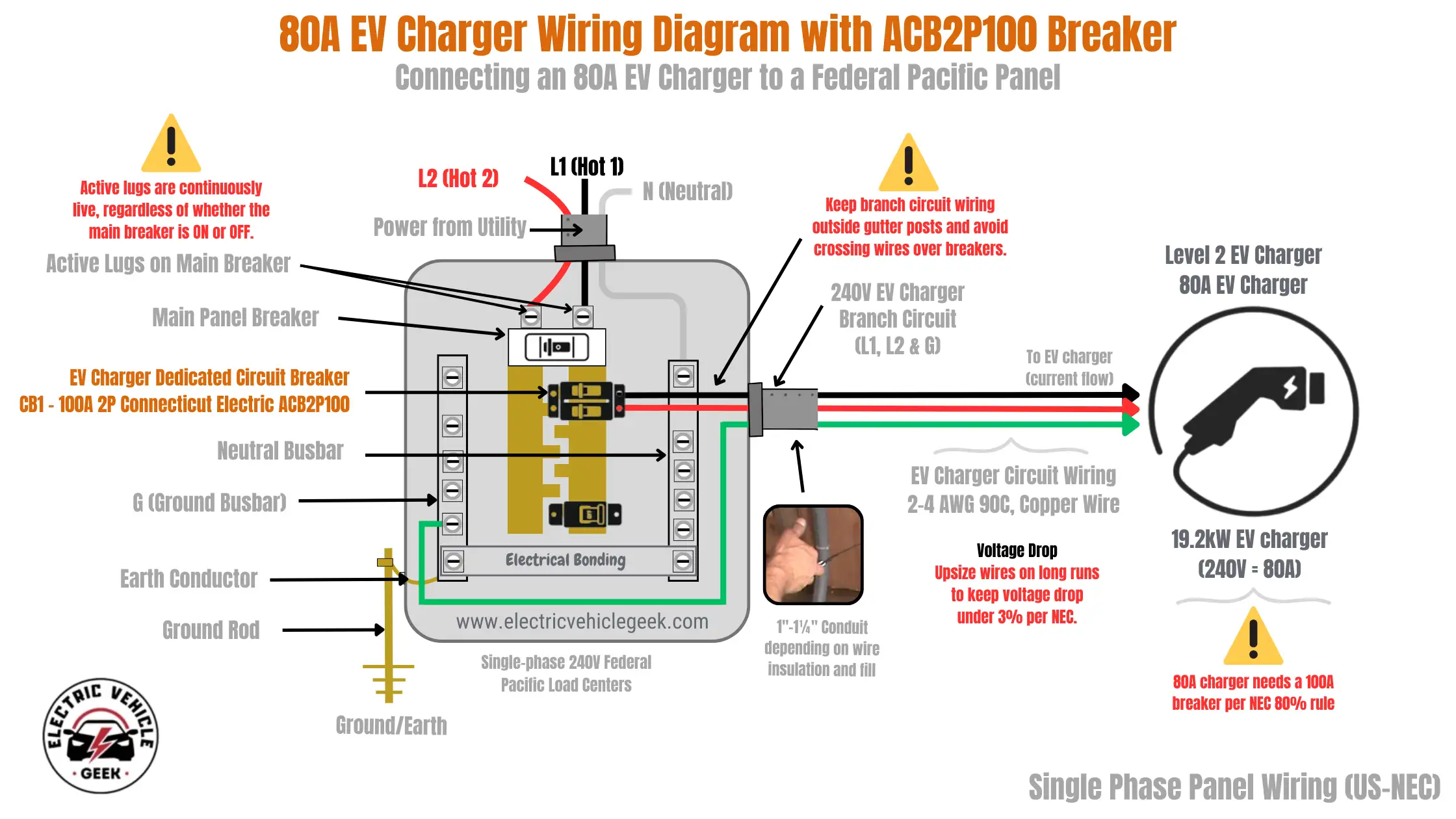
- Hot wires (L1 & L2): 2–4 AWG solid copper (THHN/THWN or equivalent)
- Ground (G): Minimum 6 AWG copper, bare or green insulated
- Conduit size: 1″–1¼”, depending on wire insulation and fill
- Breaker type: Connecticut Electric ACB2P100, 2-pole, 100A plug-in
- Mounting: Compatible with Type NA Federal Pacific load centers
- Neutral: Not required for most hardwired 80 EV chargers like the 80A Grizzl-E Ultimate EV Charger
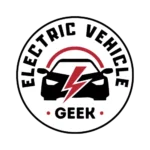
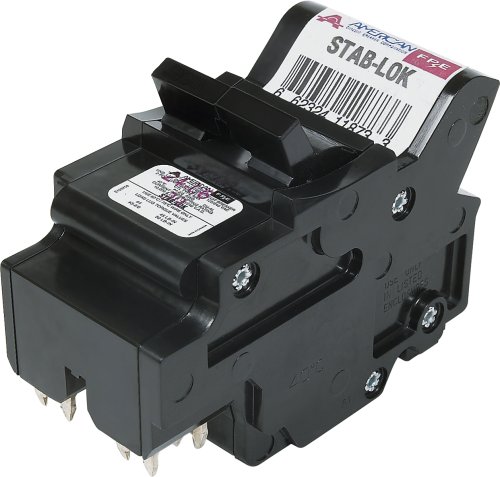
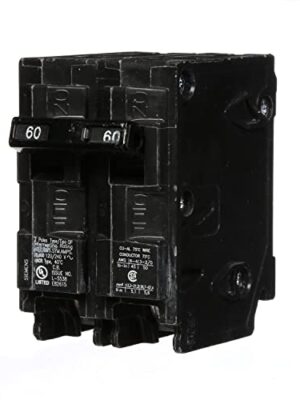
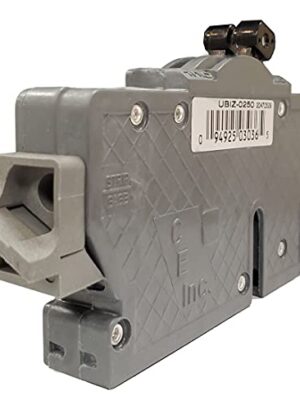
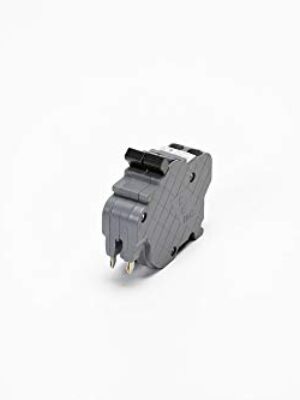
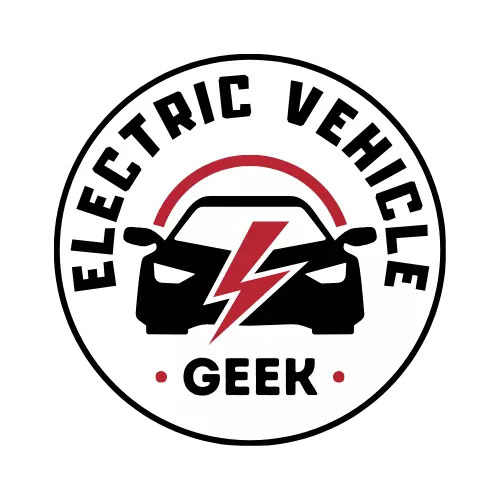
There are no reviews yet.